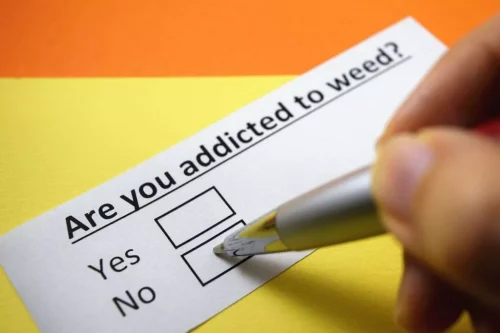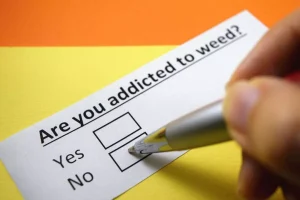
It’s essential to be cautious about combining Eliquis with these medications to ensure your safety. These two meds are buddies in preventing and treating blood clots, doing the same job. But teaming them up is a risky move, as it can up your chances of serious bleeding. If you’re experiencing any unwelcome side effects or noticing some bleeding action from either Eliquis or Xarelto, it’s time for a chit-chat with your healthcare provider. Eliquis needs to be used carefully, especially when it comes to drinking alcohol. Alcohol can also thin the blood, so mixing it with Eliquis might not be safe.
Alternate Antithrombotic Options If Unable to Avoid Alcohol
- These tears, called Mallory-Weiss tears, can occur anywhere in the digestive tract, from the throat to the intestines, and can result in a substantial amount of bleeding.
- In some cases—if you experience bleeding gums or bruising, for example—you can simply call your doctor.
- Seeking professional help for alcohol misuse is an essential step in maintaining your health, especially if you’re taking medications like Eliquis.
- This means that your doctor and insurance company will need to communicate about your prescription before the insurance company will cover the drug.
Let’s explore the facts in a way that’s easy to understand & helps you make informed choices what happens if you drink alcohol while taking eliquis about enjoying a drink while on blood thinners, either with Eliquis tablets or Xarelto. There is no absolute restriction against alcohol use for people on Eliquis. Most healthcare providers advise patients to limit alcohol intake to the lowest possible amount or avoid it altogether. The primary risk of combining Eliquis and alcohol consumption is the heightened possibility of bleeding, since both substances independently affect blood clotting. Combining prescription medications with alcohol can lead to unexpected and sometimes dangerous interactions, particularly with blood thinners like Eliquis (apixaban). While some might consider an occasional drink harmless, even moderate alcohol consumption can amplify the medication’s effects, increasing the risk of complications.

What Medications Interact with Eliquis?
- For example, Eliquis only needs to be taken for 12 days after a knee replacement, because after this the risk of a blood clot is much lower.
- Excessive drinking, such as more than two standard drinks a day or binge drinking, significantly increases the risk of bleeding and should be avoided.
- While taking Eliquis you may bruise more easily and it may take longer for bleeding to stop.
- In moderate amounts, alcohol can decrease your blood’s clotting ability, leading to a thinner consistency and reduced clot formation.
You may need to stop taking Eliquis temporarily before certain surgical, medical, or dental procedures. In this case, your doctor will tell you when to stop Eliquis and when to start taking it again. They may prescribe another drug to help prevent blood clots while you’re not taking Eliquis. When your blood doesn’t flow freely, blood cells called platelets start clumping together inside your blood vessels. The platelets make substances that activate clotting factors in your blood.
Can I have an occasional glass of wine if I take warfarin?

To learn about other mild side effects, talk with your doctor or pharmacist, or view the drug’s prescribing information. That being said, it is important to always follow your doctor’s advice as they know best what course of action is right for you. With their guidance, you will be able to stay healthy and enjoy all that life has in store while managing any health condition or medication you may need at the same time. While massage is unlikely to directly dislodge a blood clot, it does pose some risks in certain cases. Understand safety precautions for massage therapy clients with clots. The FDA strictly warns against drinking more than one alcoholic beverage daily when stabilized on apixaban for DVT or atrial fibrillation.
- In some cases, caffeine can affect a different anticoagulant called warfarin (Jantoven).
- Therefore, people should always check with a doctor or pharmacist whether it is safe to drink alcohol with a particular blood thinner.
- Someone using alcohol while taking Brilinta should speak with their doctor about the risks that are specific to their situation.
- The best time to take Eliquis depends on your daily schedule, but ideally you should take it every 12 hours.
Some alcohol use may still be permissible; however, consultation with a doctor is essential to determine the risks for specific situations. This can help them determine if something is causing an interaction that could lead to serious bleeding. You should avoid grapefruit, grapefruit juice, marmalades, limes, and pomelos while you are taking Eliquis. These fruits prevent the breakdown of apixaban and Sobriety may increase side effects. While taking Eliquis you may bruise more easily and it may take longer for bleeding to stop. You should also seek medical attention if you cough up or vomit blood, have unexpected joint pain or swelling, have severe headaches, or feel dizzy.

Beta-blockers
Understanding how Eliquis works is crucial to grasping why alcohol consumption could be problematic. Eliquis (apixaban) belongs to a class of drugs known as direct oral anticoagulants (DOACs). It works by inhibiting Factor Xa, a crucial component in the blood coagulation process. This inhibition helps prevent the formation of blood clots, which can lead to serious health issues like strokes or deep vein thrombosis. For some, abstaining from alcohol may be straightforward, but for others, especially those grappling with an alcohol use disorder (AUD), it can be quite difficult.

They’ll likely prescribe an alternative to Multaq for your condition. Yes, you can, but heavy drinking or binge drinking will raise your risk of excessive bleeding. Alcohol can also alter the time it takes for your body to break down your blood-thinning medication which means it can stay in your system for longer. You don’t want to take another dose if your system hasn’t processed the last dose. If you do drink, you should not exceed the maximum weekly recommended intake of 14 alcohol units a week (a glass of wine is two units and a pint of beer or lager is two or three). You should ask your doctor before using any blood pressure or heart medicine together with alcohol.
